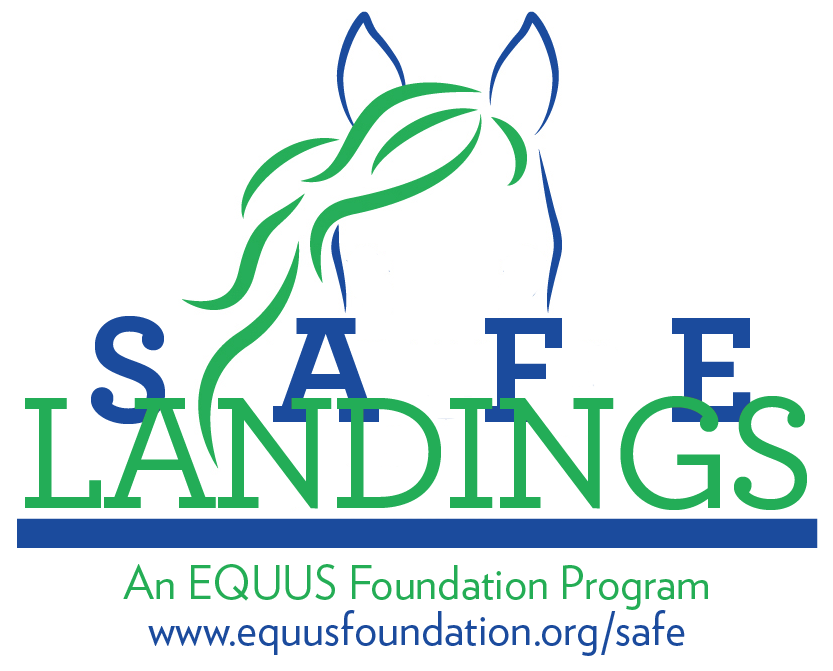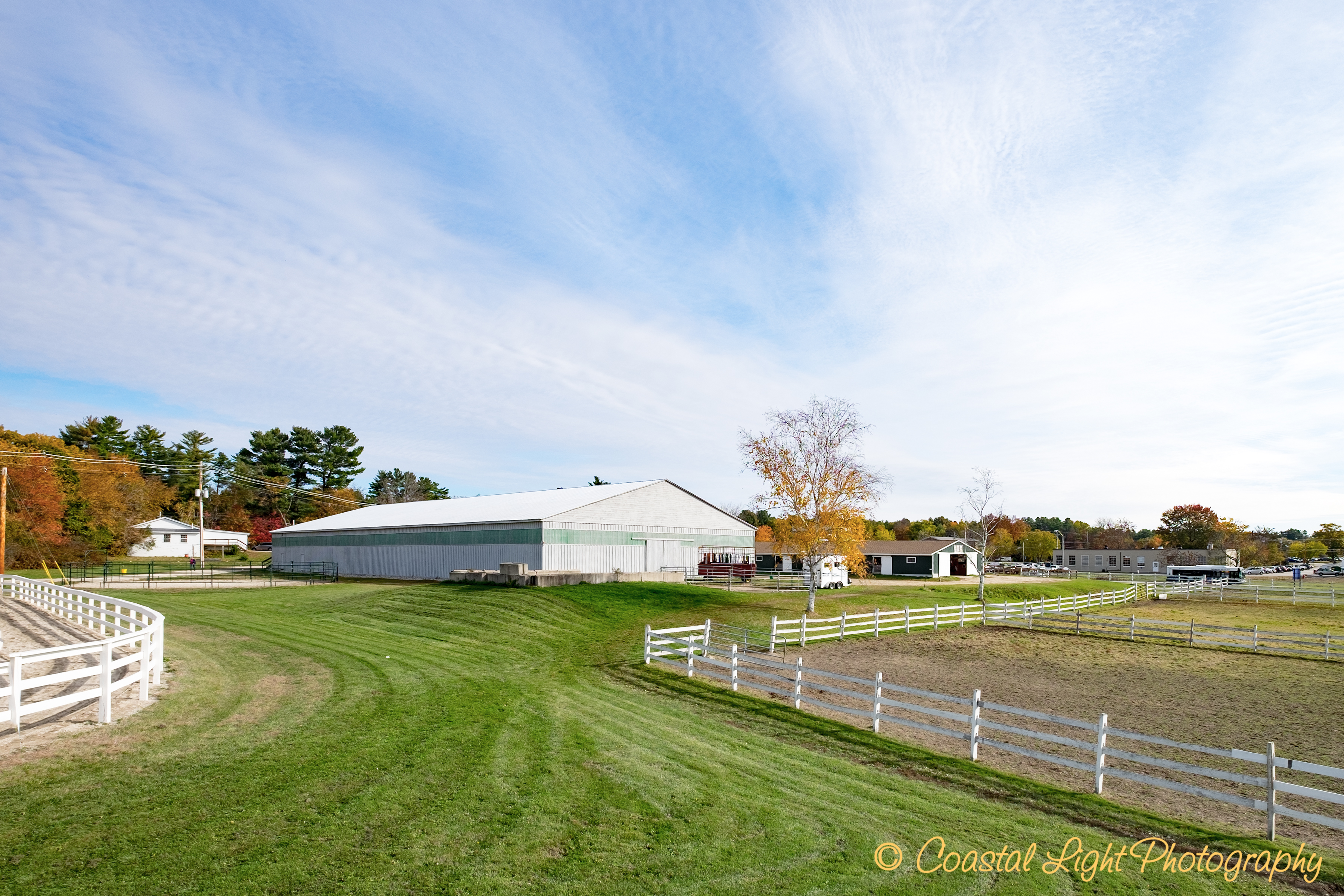Are we the next chapter for your horse?
University of New Hampshire Equestrian Team
Durham, NH
Horse to walk/trot/canter and jump small jumps
We are seeking a Horse that meets the following criteria:
Age Range:
Aged 10-14
Gender:
Geldings Mares
Size Preference:
Small Horse (14.3 to 15.3h) Large Horse (16.0 to 16.3h)
Breeds we will
NOT consider:
Full Drafts
Temperament:
Kind
Activities that the equine will be expected to perform:
English Walk/Trot/Canter
Jumping
Current/former experience/training which could make the equine suitable for your program:
Hunter
Jumping
The organization has the following policies about horses who are sound and healthy but have the following chronic conditions that require medication:
Lyme Disease: Not Accept
Cushing's Disease: Not Accept
Thyroid Disease: Not Accept
Navicular Disease: Not Accept
Inflammation: Not Accept
Location: The equine will be located at University of New Hampshire Equine Center, 278 Mast Road, Durham, NH 03824
Click on photo to view larger image
Close X
Total acreage dedicated specifically to the horses: 50
The organization has use of the following at this facility:
Structures/Barns: 2 Run-in sheds: 2
Pastures: 13 Paddocks/Pens/Turnout Areas: 11
Uncovered Outdoor Rings: 4 Covered Outdoor Rings: 0
Indoor Rings: 1
Horses have assigned stalls in the structure(s).
Horses are stalled for 17+ hours per day, on average.
Horse Turn Out Practices:
Equines are out 1 to 3 hours per day
Equines are out 24/7 except when they are used for the conduct of the organization's programs
The following describes the pastures at this facility:
This facility has a written plan in place for pasture management, which includes guidelines for seeding, fertilizing, irrigation, mowing, dragging, harrowing, manure removal, removal of debris, the control of poisonous plants, and a schedule for cleaning
A dedicated staff person(s) is responsible for pasture management
All pastures are fenced to prevent escape or injury
Fencing checks, such as broken or missing planks, loose fence posts, exposed or loose nails, detached wires, etc., are done regularly
Pastures are rotated
The following describes the turnout areas other than pastures at this facility:
This facility has a written plan in place for the maintenance of turnout areas, which includes a schedule for cleaning, manure removal, and dragging
A dedicated staff person(s) is responsible for the maintenance of turnout areas
All turnout areas are fenced to prevent escape or injury
Fencing checks, such as broken or missing planks, loose fence posts, exposed or loose nails, detached wires, etc., are done regularly
Horses have access to clean drinking water at all times
Hoof care is provided for each horse: Every 4-8 weeks and when an issue arises
Dental care is provided for each horse: Annually and when an issue arises
Each horse is visually and physically checked by personnel at the facility: Every day or 6 days a week
Close X
The organization requires the following with respect to the health status of the equine prior to acceptance and arrival at the organization:
A current Coggins
Vaccination records that have been administered within the last 12 months
If health records are not available or are out-of-date, the owner is responsible for having vaccinations administered.
The organization has the following policies in place prior to an equine being accepted and/or arriving at the facility:
The owner of a potential equine is interviewed over the phone or in person prior to seeing the equine
The equine is evaluated at its place of residence
The owner completes an application/contract which constitutes the agreement between the owner and our organization
The owner is financially responsible for the shipping of the equine to and from the organization
Equines are on trial for up to 30 days
The trial period may be reduced based on the equine's progress
During the trial period, the organization accepts total financial responsibility for the care of the equine, including board, feed, shoeing and any necessary veterinary care
The trial period may be terminated by either the organization or the owner for any reason
The organization assesses equines for following skills and behaviors:
Retrieval from a pasture/paddock
Leading with a halter and lead rope
Temperament, disposition and attitude, such as rated from very calm to very high spirited
Saddling
Bridling
Lunging
Mounting and dismounting
Riding at the walk
Riding at the trot
Riding at the canter
Riding by a beginner and/or unbalanced rider
Jumping
Tolerance to unusual objects and loud noises
Known vices, i.e., cribbing, biting, kicking, weaving, stall walking, etc
Grooming
Bathing
Following arrival at the facility, the following is performed:
Physical examination by a veterinarian upon arrival
Physical examination by a farrier
De-worming
Our organization has the following policies and procedures in place pertaining to the ongoing assessment of horses in its care:
*Missing
Horses provided formal training (groundwork or riding):
2-3 times per week
The organization has the following policies related to breeding and stallions:
Our main facility where our organization conducts its programs does NOT breed equines.
Close X
Rehoming
Our organization has the following re-homing (adoption/purchase) policies and procedures in place:
All potential adopters/purchasers complete a written contract which constitutes the agreement between our organization and the new owner
Potential adopters/purchasers must visit our organization and be observed with the equine on site
The distance of a potential adopter/purchaser's home from our facility is a consideration for when re-homing an equine
Our organization conducts a site visit of the adopter/purchaser's facility before the transfer of the equine to the adopter/purchaser's facility
Adopters/purchasers are NOT required to provide updates
None of the statements are included.
The organization requires references from the following:
Veterinarian
Farrier
Personal/Other
Transfer of ownership occurs:
Immediately (at the time of adoption/purchase) or less than one year
has the following policies and procedures related to horses that need to be retired, are no longer able to contribute to the mission of the organization, and/or are no longer manageable:
Equines may be found suitable homes by our organization
Equines may be returned to their owners
In the case an equine is unsound and/or unhealthy and cannot be treated to relieve suffering, the equine may be euthanized upon the recommendation of the veterinarian
View Re-homing Agreement
Close X
The organization has the following policies and procedures related to horses that need to be retired, are no longer able to contribute to the mission of the organization, and/or are no longer manageable:
Equines may be found suitable homes by our organization
Equines may be returned to their owners
In the case an equine is unsound and/or unhealthy and cannot be treated to relieve suffering, the equine may be euthanized upon the recommendation of the veterinarian
The organization has the following policies related to euthanasia:
Our organization will never have an equine euthanized for space
Our organization will have an equine euthanized upon the recommendation of the veterinarian after all reasonable treatment options have been explored
Euthanasia is done on site when possible to decrease trauma from transport
Disposal of the carcass is handled within 24 hours
The following are authorized to administer the procedure for the organization in accordance with state laws:
Veterinarian
Close X
University of New Hampshire Equestrian Team
278 Mast Road
Durham NH 03824
603-862-0343
Last Updated 2021-06-07
Mission/How we are involved with horses:
Primary Focus involving horses
(Horse Welfare, Public Service, Sport & Recreation):
Sport & Recreation
The organization is directly responsible for the care and shelter of equines involved in the organization's programs.
The organization does not provide community outreach and/or public education programs involving horses.
|
Founded: 1967
|
View our WEBSITE
2198/2978/388



